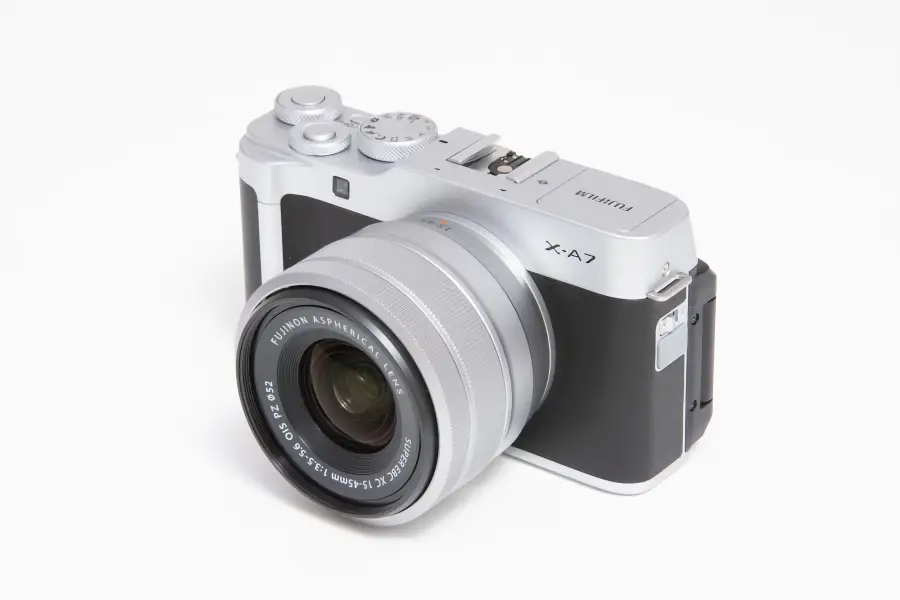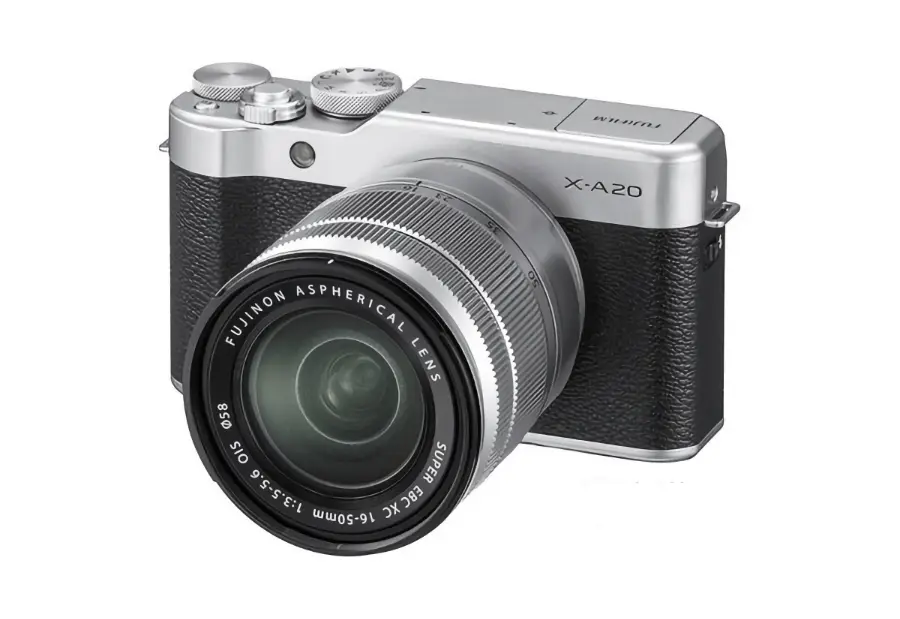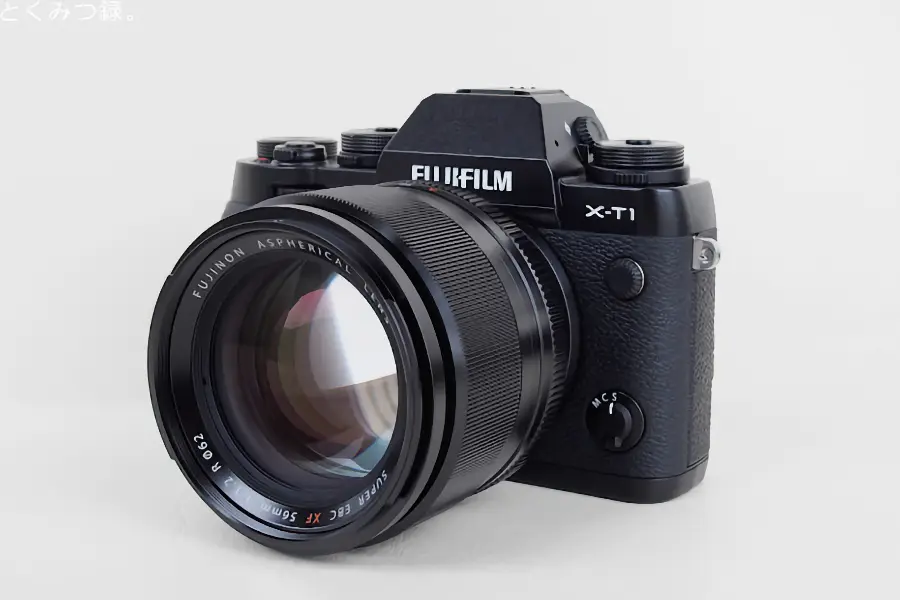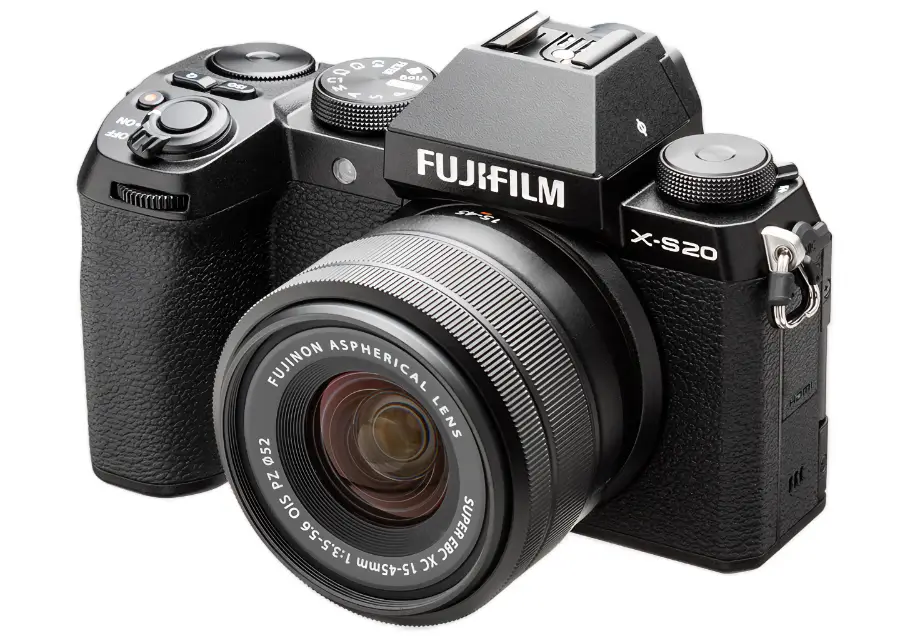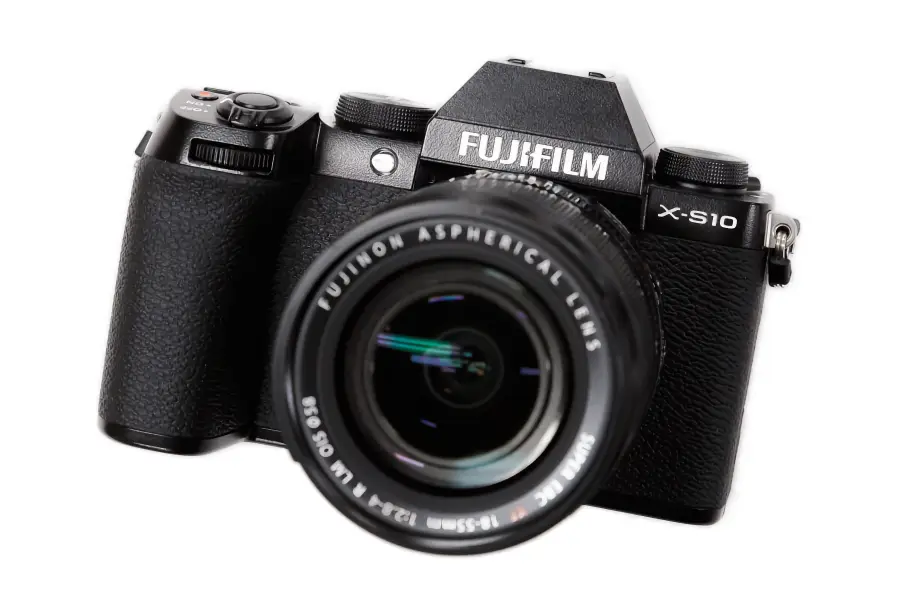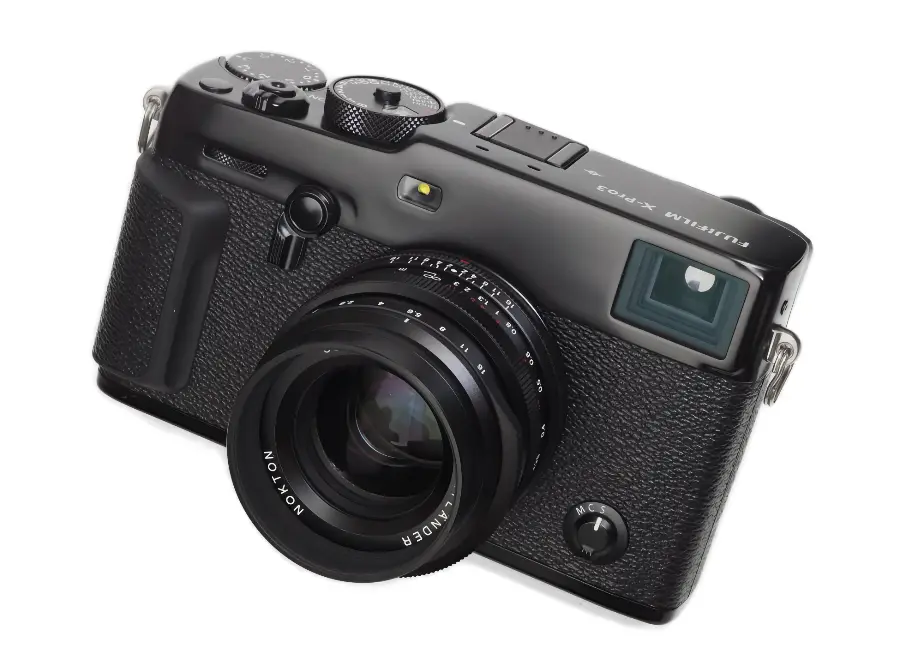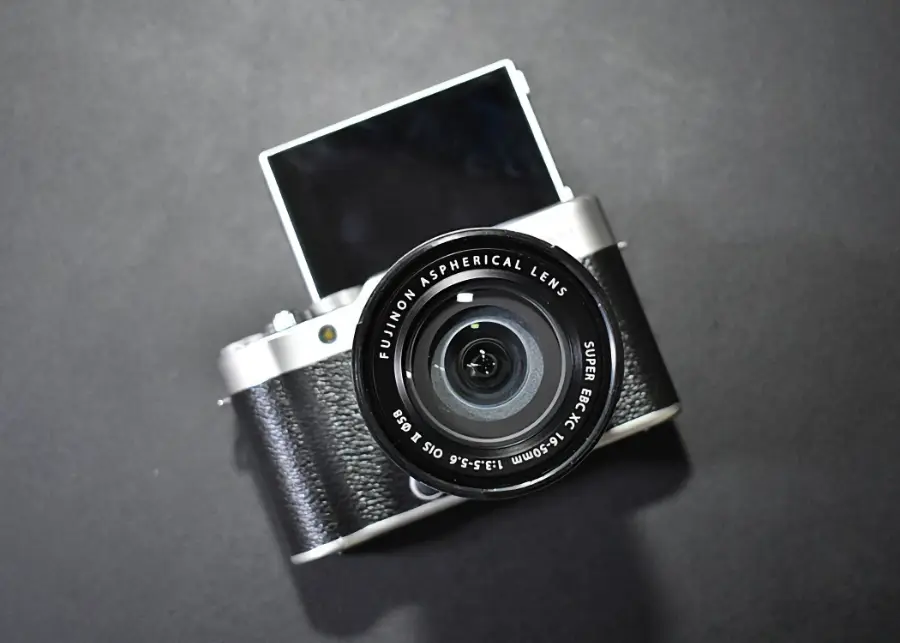
The Fujifilm X-A10, released in 2016, remains an attractive option even in 2024. In this review, we’ll examine the key features, pros and cons of the X-A10, and its position in the modern camera market. We’ll explore whether this 8-year-old camera, offering excellent image quality at an affordable price, could be the right companion for your photographic journey.
X-A10 Key Specifications
| Spec | Details |
|---|---|
| Sensor | 16MP APS-C CMOS (Bayer filter) |
| Processor | Unspecified (Not X-Trans) |
| ISO Range | 200-6400 (exp. 100-25600) |
| Cont. Shooting | Up to 6fps |
| Autofocus | Contrast-detect AF |
| Screen | 3-inch 920K dot tilting LCD |
| Video | 1080/30p |
| Weight | Approx. 331g (with battery and card) |
| Size | 116.9 x 67.4 x 40.4 mm |
| Battery Life | Approx. 410 shots (CIPA) |
| Storage | SD/SDHC/SDXC card (UHS-I support) |
🎨 Design & Build Quality
The Appeal of Compact Size
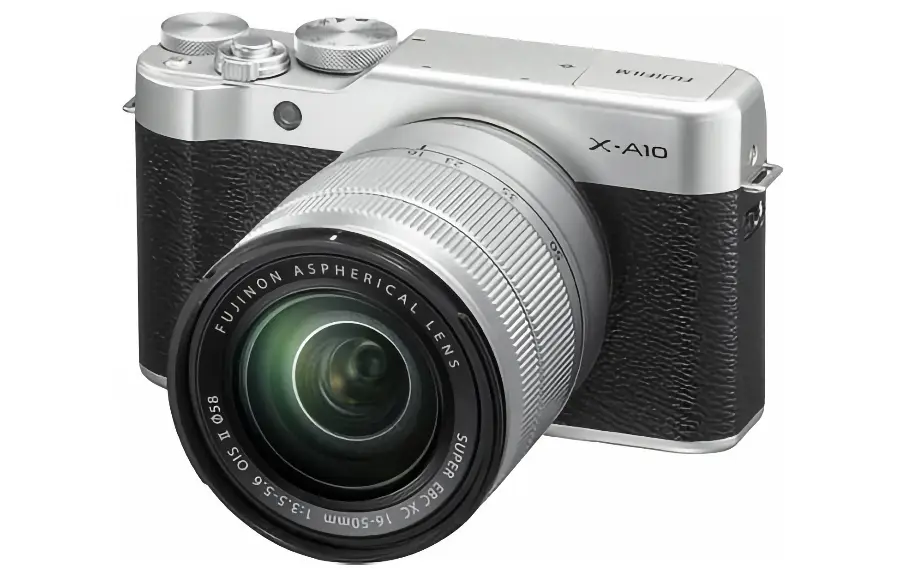
One of the Fujifilm X-A10’s biggest advantages is its compact size. Measuring 116.9 x 67.4 x 40.4 mm and weighing about 331g, this camera is truly portable. Despite its small size, the X-A10 offers a comfortable grip, reducing fatigue during extended use.
The Charm of Retro Design
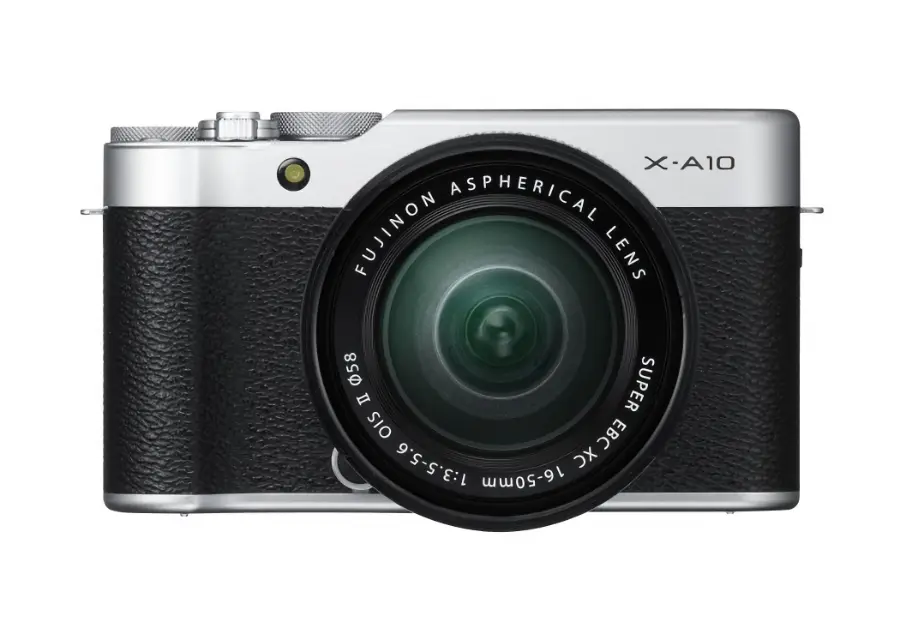
Fujifilm’s signature retro-style design shines through in the X-A10. Beyond aesthetics, this classic exterior offers practical benefits. The intuitive placement of dials and buttons makes it easy for even beginners to operate.
The Practicality of a Tilt Screen
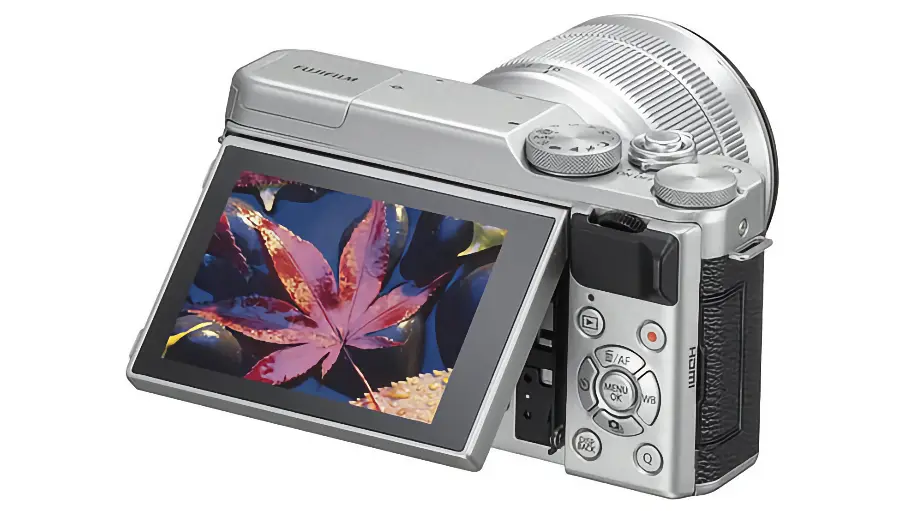
The 3-inch 920K dot resolution tilting LCD screen is another strength of the X-A10. Its 180-degree rotation capability makes it suitable for selfies and vlogging, as well as low-angle or high-angle shots. However, the lack of touch screen support is a minor drawback.
📸 Image Quality & Performance
The Power of the 16MP APS-C Sensor
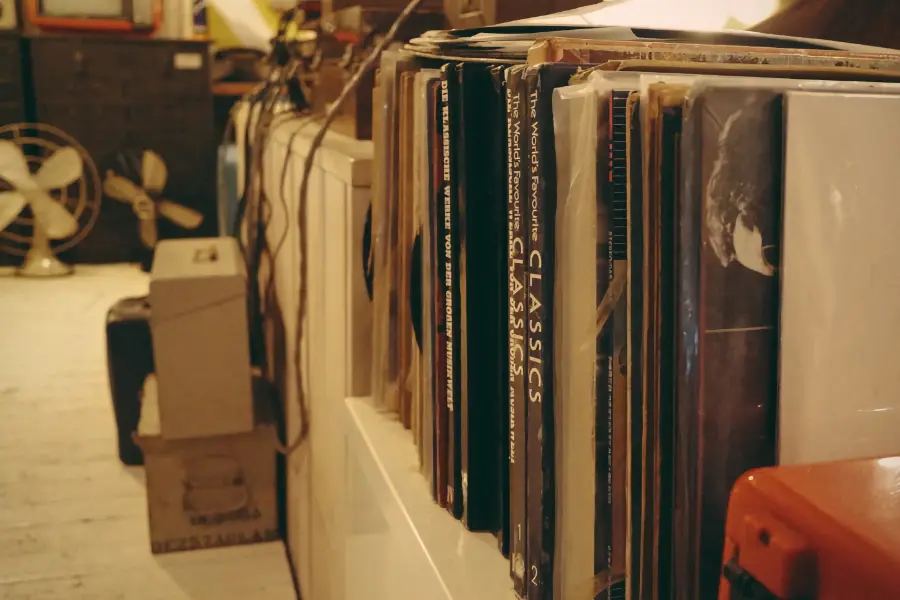
The X-A10 is equipped with a 16MP APS-C CMOS sensor. While this may seem low-resolution compared to modern high-megapixel cameras, it provides sufficient detail and clarity for most uses. It also performs well in low-light conditions, producing usable images up to ISO 3200.
Fujifilm’s Color Science

One of the biggest advantages of Fujifilm cameras is their excellent color reproduction. The X-A10 continues this tradition, producing beautiful colors in JPEG output. Film simulation modes like Classic Chrome allow you to create unique and attractive images without post-processing.
Autofocus Performance
The X-A10 uses a contrast-detect autofocus system. While it may lag behind the phase-detect or hybrid AF systems of newer cameras in terms of speed, it’s adequate for everyday shooting. It’s particularly accurate for static subjects and landscape photography.
🔧 Features & Usability
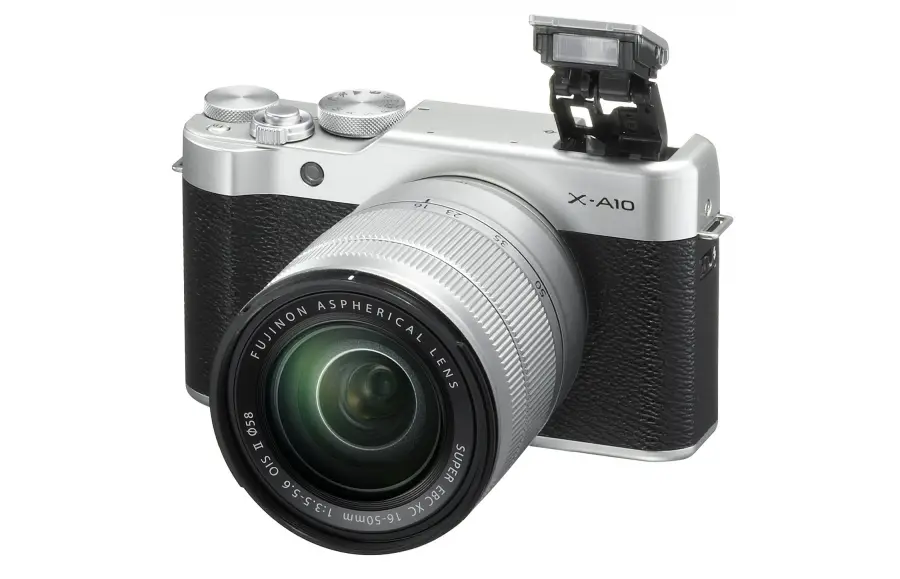
User-Friendly Interface
The X-A10 is designed to be easy to use, even for beginners. The mode dial allows easy switching between automatic and manual modes, while the quick menu button provides fast access to frequently used settings.
Wi-Fi Connectivity
Built-in Wi-Fi allows connection to smartphones or tablets. Using the Fujifilm Camera Remote app, you can remotely control the camera or transfer images, making it easy to share photos on social media.
Battery Life
With a CIPA rating of about 410 shots, the battery life is decent compared to other mirrorless cameras in its class. It’s sufficient for a full day of shooting in most cases.
📊 Comparison with Competitors
vs Sony A6000
The Sony A6000 is a popular model released around the same time as the X-A10. The A6000 offers a 24MP sensor and faster autofocus system, but it’s more expensive and less intuitive to operate than the X-A10.
vs Canon EOS M10
The Canon EOS M10 is a similar entry-level mirrorless camera. It features an 18MP APS-C sensor and supports touch screen, which is an advantage. However, the X-A10 offers a wider range of lens choices.
vs Olympus E-PL8
The Olympus E-PL8 is a compact mirrorless camera using a Micro Four Thirds sensor. While its low-light performance is inferior to the X-A10 due to the smaller sensor size, it offers more features and faster continuous shooting speed.
🔍 Lens Compatibility & Selection
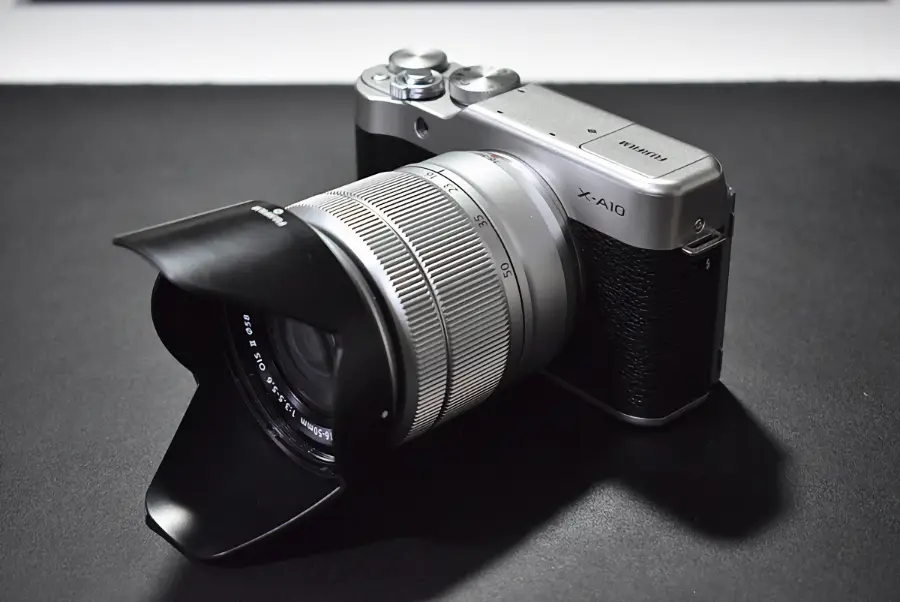
Advantages of Fujifilm X Mount
The X-A10 uses Fujifilm’s X mount, allowing access to a wide range of high-quality lenses. From premium XF series lenses to more economical XC series, there’s a wide selection to choose from.
Recommended Lenses
- XC 15-45mm f/3.5-5.6 OIS PZ: Often provided as a kit lens, it’s lightweight and versatile, suitable for everyday shooting.
- XF 35mm f/2 R WR: A small, lightweight prime lens ideal for landscapes or portraits.
- 7artisans 25mm f/1.8: An affordable manual focus lens offering good image quality.
💡 Usage Tips & Tricks
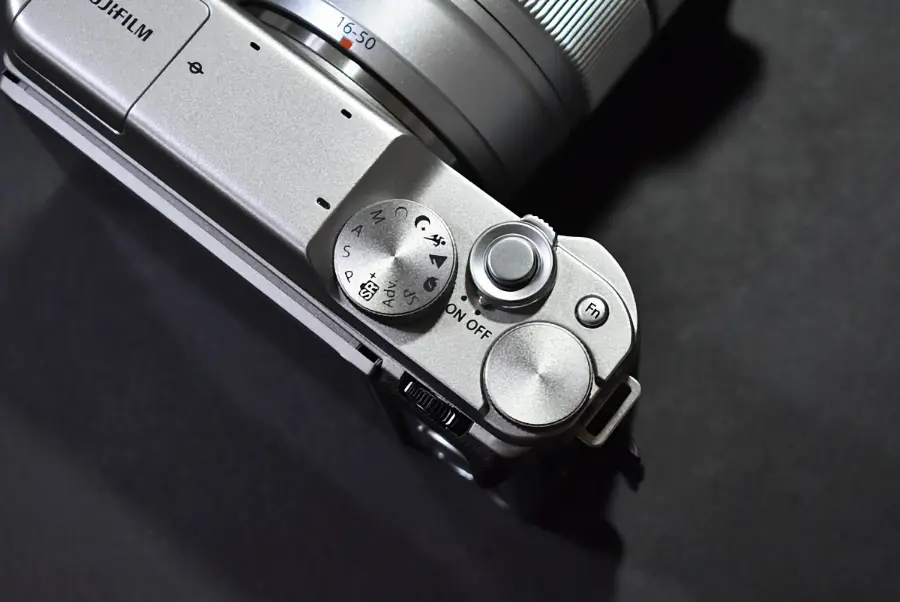
Utilizing Film Simulations
Make the most of Fujifilm’s film simulation modes. Classic Chrome offers subdued colors ideal for street photography, while Velvia is perfect for vibrant landscapes. These modes allow you to achieve unique looks without post-processing.
Shooting RAW+JPEG
The X-A10 can shoot RAW and JPEG simultaneously. This allows you to quickly review JPEG images on-site while retaining RAW files for more detailed editing later.
Using Custom Settings
Registering frequently used settings in the custom menu allows for quick setting changes during shooting. For example, you can save indoor/outdoor shooting settings for convenience.
📱 Mobile Integration & Social Media
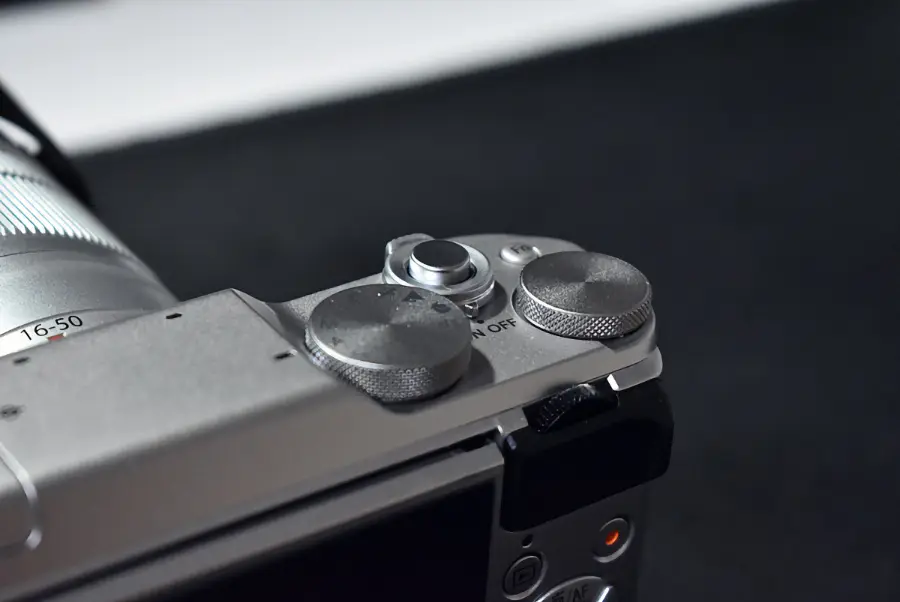
Fujifilm Camera Remote App
Fujifilm’s official ‘Camera Remote’ app allows you to control the camera remotely and transfer photos using your smartphone. This is particularly useful for selfies or group photos.
Optimized Shooting for Instagram
Using the X-A10’s 1:1 aspect ratio shooting mode, you can easily capture square photos optimized for Instagram. Combining this with film simulation modes can yield impressive results.
🎬 Video Recording Features
1080p/30fps Recording
The X-A10 can record video at Full HD 1080p resolution at 30fps. While it doesn’t support 4K, this is sufficient for casual vlogging or YouTube content creation.
Video Recording Precautions
- The built-in microphone quality is not high, so using an external microphone is recommended if possible.
- As continuous AF isn’t perfect, manual focus might be better for scenes with a lot of movement.
💰 Price & Value
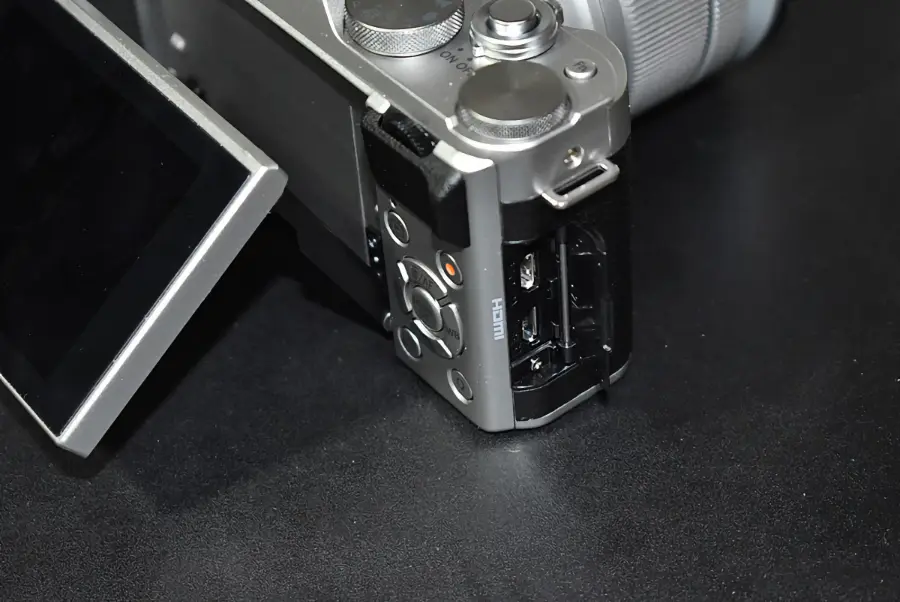
Position in the Used Market
As of 2024, the X-A10 can be purchased at very competitive prices in the used market. Typically priced around $200-$300 with a lens kit, it offers excellent value for money.
Optimal Choice for Beginners
Considering its low entry barrier, excellent image quality, and Fujifilm’s superior color reproduction, the X-A10 can be an ideal choice for beginners entering the world of photography.
🔧 Maintenance & Durability
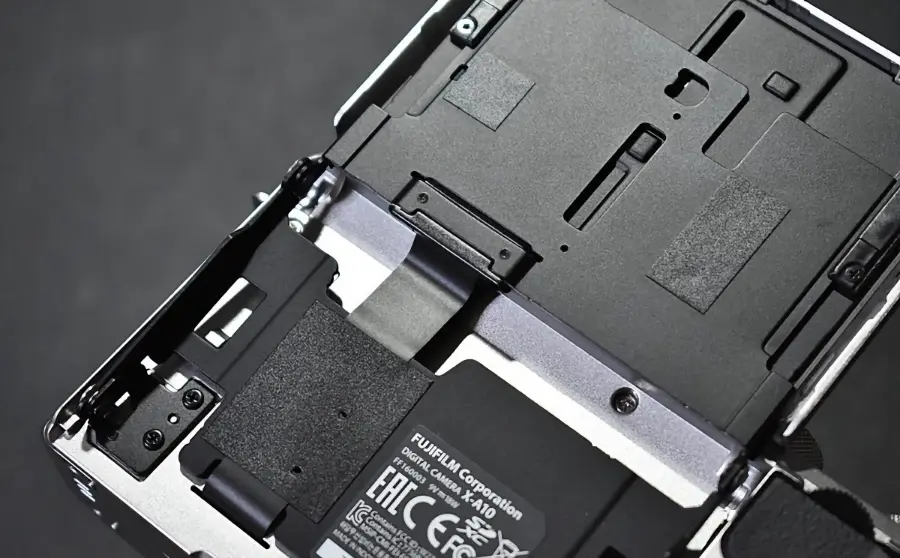
Durability
While its plastic body may be less durable than premium models, it’s sufficiently robust for general use. However, it lacks weather-sealing, so caution is needed in adverse weather conditions.
Firmware Updates
Fujifilm regularly provides firmware updates to improve functionality and fix bugs. Keeping the firmware up-to-date ensures better performance and stability.
📸 Real World Experience & User Reviews
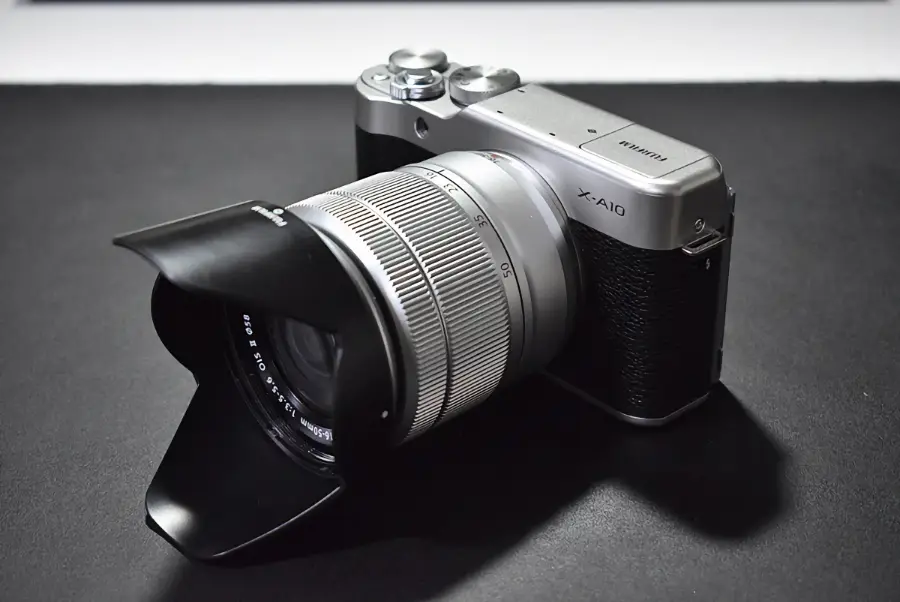
Many users express satisfaction with the X-A10’s excellent image quality and ease of use. Fujifilm’s unique color rendition and compact size are particularly highly rated. However, some users point out the lack of an EVF (Electronic Viewfinder) and slow AF speed as drawbacks.
🏞️ Landscape Photography Tips
When shooting landscapes with the X-A10, try these tips:
- Use a tripod: This allows for sharper images in low-light conditions.
- Utilize filters: ND or polarizing filters can enhance your images.
- Try Velvia film simulation: This can produce vibrant landscape photos.
👤 Portrait Photography Tips
Tips for portrait photography with the X-A10:
- Use a 35mm or 50mm equivalent lens: This provides natural perspective.
- Try Astia film simulation: It renders skin tones beautifully.
- Utilize face detection AF: This ensures sharp focus on your subject’s face.
🌃 Night Photography Tips
Settings for night photography with the X-A10:
- Use a tripod: Essential for preventing camera shake.
- Use low ISO: Minimize noise by using the lowest possible ISO.
- Try long exposures: This can capture light trails or brighten dark scenes.
🔄 Upgrade Path
If you’re considering upgrading from the X-A10 to a higher-spec camera, consider these models:
- Fujifilm X-T20: Offers an EVF and more advanced AF system.
- Fujifilm X-E3: Maintains compact size while improving performance.
- Fujifilm X-T30: Provides higher resolution and 4K video recording.
📊 Summary of Pros and Cons
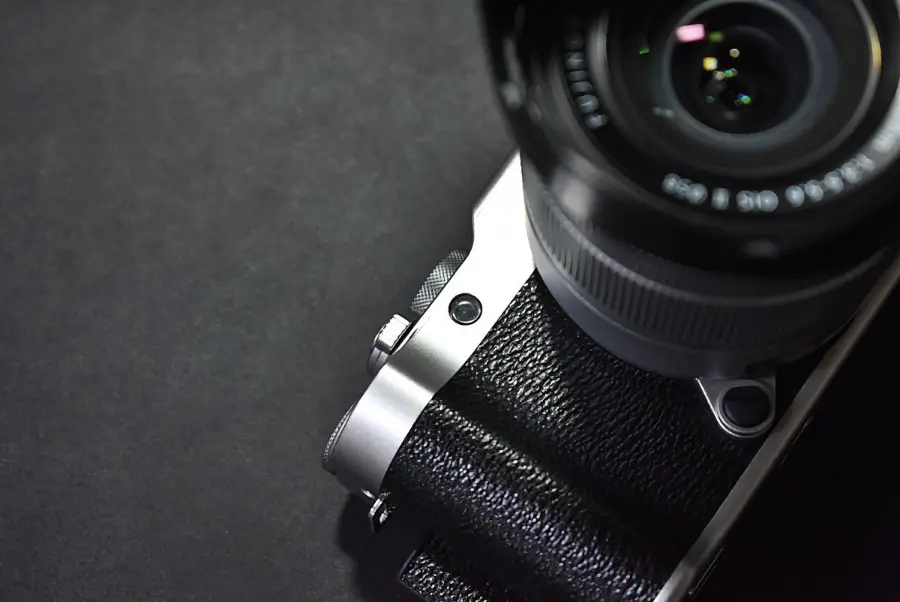
Pros
- Compact and lightweight design
- Excellent image quality and color reproduction
- User-friendly interface
- Affordable price
- Compatible with various Fujifilm X mount lenses
Cons
- Lack of EVF
- Slow AF speed (compared to newer models)
- No 4K video support
- No touch screen support
🏁 Conclusion
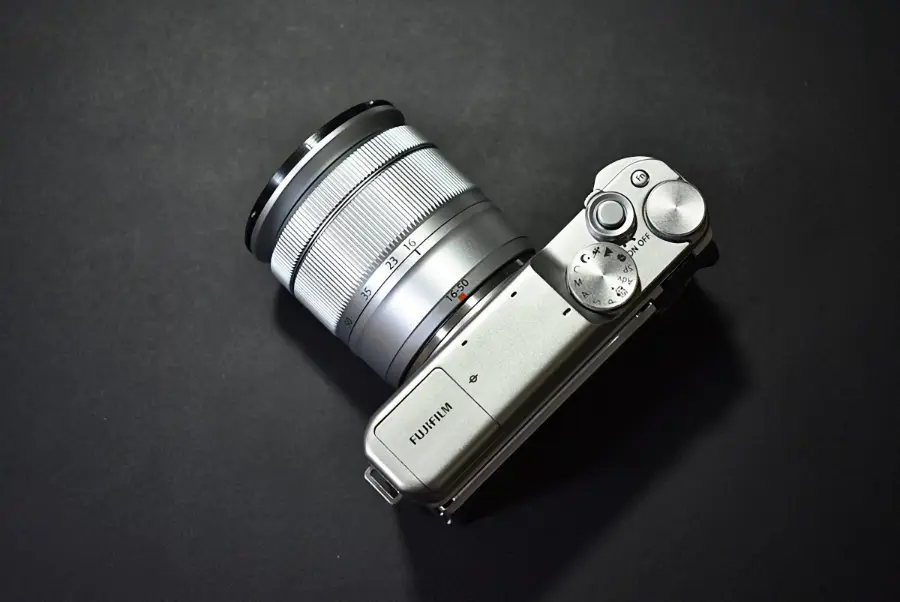
The Fujifilm X-A10 remains an attractive option even in 2024. It’s ideal for beginners entering photography or users seeking a lightweight second camera. While it may not have all the latest technology, its core features, excellent image quality, and attractive price point are its strengths.
While drawbacks like the lack of EVF or slow AF exist, these may not be significant issues depending on your intended use and personal shooting style. Fujifilm’s unique color science and film simulations continue to captivate many photographers, and the X-A10 offers an affordable way to experience these.
In conclusion, the Fujifilm X-A10 offers excellent performance for its price, making it a camera worth considering even in 2024. It’s highly recommended for those looking to learn photography basics and enter the Fujifilm system.


